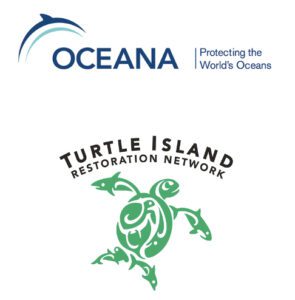 A report released April 17 by two environmental entities contends that the set gillnet fishery targeting halibut and white seabass off Southern California is threatening the health and diversity of the ocean ecosystem.
A report released April 17 by two environmental entities contends that the set gillnet fishery targeting halibut and white seabass off Southern California is threatening the health and diversity of the ocean ecosystem.
The gillnets are injuring and killing myriad ocean animals, including rare and vulnerable species, while the fishery remains largely unmonitored, according to Oceana and the Turtle Island Restoration Network (TIRN). Their analysis concludes that the fishery throws overboard 64% of animals caught, ranking its untargeted catch as among the highest bycatch of any fishery in the country.
Caitlynn Birch, a Pacific marine scientist with Oceana, said the set gillnet fishery is clearly a risk to the health and resilience of California’s oceans.
As climate change continues to create a harsher environment for many vulnerable marine species, specifically sharks and whales, stronger protections are needed, Scott Webb, an advocacy and policy director with the Turtle Island network, said.
Management tools are available to reduce this bycatch, and a more selective hook-and-line fishing method is already well-established, they said.
The analysis conducted by Oceana and TIRN found that 75% of the shark, skate and ray bycatch is being discarded overboard and that set gillnets are the primary threat to juvenile great white sharks in their nursery grounds off California.
The population of white sharks, which play an important ecosystem role, are still at low numbers, they said.
The analysis also found that gray whales and federally threatened and endangered populations of humpback whales are susceptible to entanglement in set gillnets, and that more California sea lions are killed annually by set gillnets than all other observed West Coast fisheries combined.
Set gillnet harvesters also are throwing back dead commercial and recreational species, such as undersized California halibut, rock crab, sand bass and lingcod, which has an adverse impact on other recreational and commercial fisheries, the report said.
